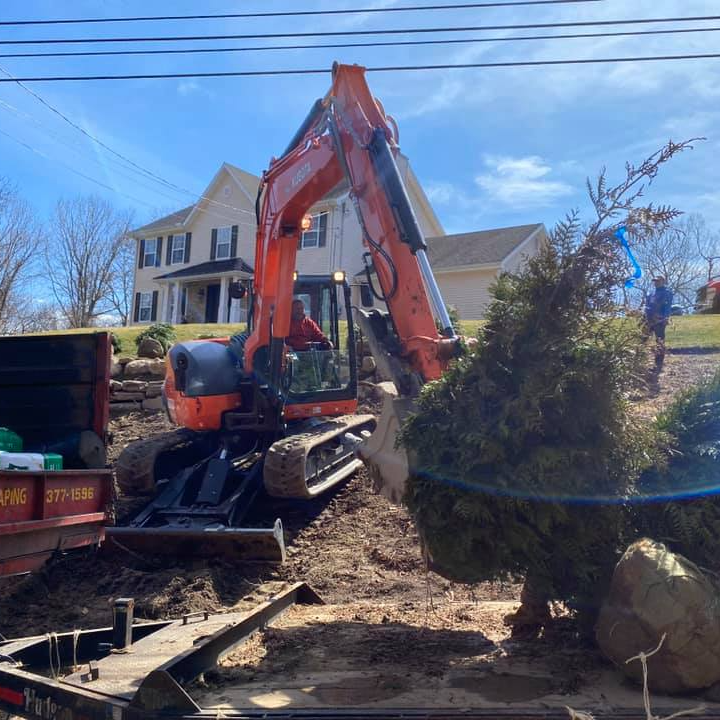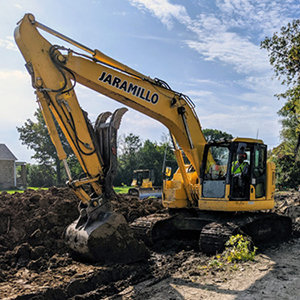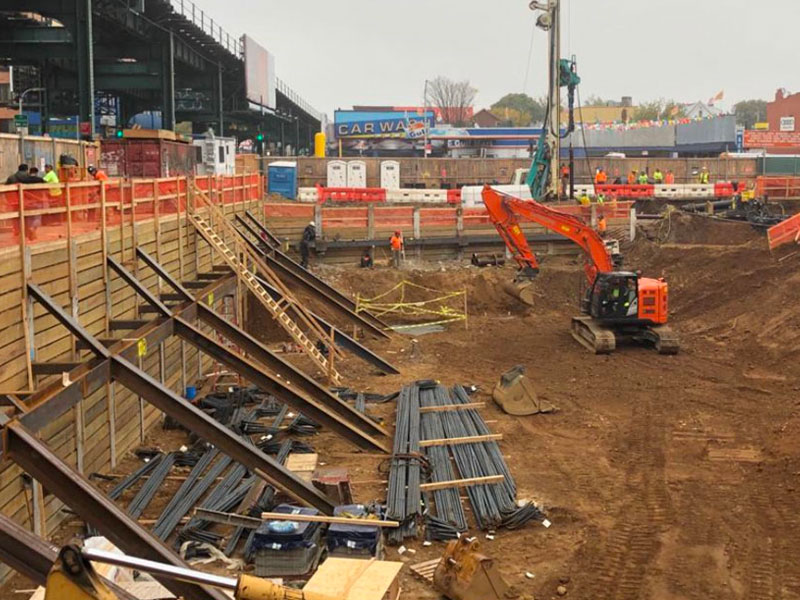Lancaster Trenching - Professional Trenching Solutions in Lancaster, Ohio
Lancaster Trenching - Professional Trenching Solutions in Lancaster, Ohio
Blog Article
Comprehensive Excavation Strategies: Mastering the Principles for Success
The mindful planning, precise execution, and thorough attention to information required in excavation projects require an extensive strategy that includes various fundamental aspects. The real proficiency lies not merely in comprehending these basics yet in perfectly integrating them to browse the complexities of excavation jobs with skill.
Understanding Excavation Task Preparation

Successful excavation jobs are improved the structure of detailed and thorough planning. The initial phase of any excavation project is the drawing board, where crucial choices are made that can considerably affect the end result of the job. Throughout this stage, it is vital to collect all pertinent information concerning the website, consisting of topographical surveys, soil composition, and any type of prospective threats that may exist. Recognizing the project timeline, extent, and budget restrictions is critical for developing a comprehensive excavation strategy that guarantees the task's success.
One secret element of excavation task preparation is the development of a thorough timeline that describes the series of tasks, deadlines, and milestones. By carefully thinking about all these aspects throughout the planning phase, excavation jobs can be performed effectively and properly, leading to effective results - dump truck companies in ohio.
Soil Evaluation and Website Evaluation
Carrying out detailed dirt evaluation and website examination is an important action in the prep work phase of any type of excavation project. Soil analysis includes figuring out the make-up, framework, and buildings of the dirt at the excavation website. This information is critical for understanding the dirt's bearing capacity, dampness material, and possibility for disintegration, which are crucial consider figuring out the excavation approaches and devices needed for the project.
Website assessment goes past dirt analysis and incorporates a wider assessment of the total website conditions. This evaluation includes determining any possible dangers, such as underground utilities, environmental concerns, or unsteady terrain, that could impact the excavation process. By thoroughly evaluating the site, task managers can create efficient excavation methods that prioritize safety, effectiveness, and ecological security.
Making use of sophisticated innovations like ground-penetrating radar, soil tasting, and drone surveys can improve the accuracy and efficiency of dirt evaluation and site evaluation. Spending time and sources in these initial steps can ultimately save time and protect against expensive hold-ups or complications throughout the excavation process.
Devices Option and Utilization
Effective excavation jobs depend heavily on calculated tools option and application to make certain optimal efficiency and productivity. Picking the right equipment for the work is critical in making the most of performance and decreasing downtime. Factors such as the type of soil, depth of excavation, and task scope play a significant function in figuring out one of the most ideal tools for the job at hand.

Along with choosing the ideal devices, appropriate application is vital to job success. Operators needs to be educated to take care of the devices safely and successfully - lancaster trenching. Routine upkeep checks and timely repairs aid stop breakdowns and make sure regular performance throughout the task
Precaution and Laws Conformity
In the world of excavation tasks, prioritizing safety and security actions and conformity with laws is critical to making certain a legally audio and secure functional atmosphere. Precaution encompass a range of techniques, including performing complete site assessments, implementing appropriate signage and obstacles, and supplying adequate safety and security training for all workers involved in the excavation process. Adherence to regulations, such as OSHA demands in the USA, makes certain that the excavation project fulfills the essential requirements to protect workers, bystanders, and the surrounding atmosphere.

Tracking Development and Adjusting Strategies
How can forecast supervisors properly track the innovation of excavation tasks and adapt their approaches appropriately to enhance results? Surveillance progression is crucial for ensuring that excavation tasks stay on track and fulfill view website due dates.

Conclusion
In final thought, understanding the principles of detailed excavation techniques is crucial for the success of any type of project. By comprehending job preparation, evaluating dirt and website problems, picking ideal devices, following safety policies, and checking progress, project supervisors can make certain a smooth and effective excavation procedure. Applying these approaches will certainly lead to effective end results and decrease possible dangers or setbacks throughout the excavation job.
The first phase of any excavation project is the planning stage, where vital choices are made that can substantially impact the result of the task. Recognizing the job budget, scope, and timeline restraints is crucial for creating an extensive excavation plan that makes sure the task's success.
Exactly how can project supervisors efficiently track the improvement of excavation jobs and adapt their methods appropriately to enhance end results? By carefully keeping track of development and being eager to adjust methods, task managers can improve the total success of excavation jobs.
By recognizing task planning, examining soil and website conditions, selecting appropriate tools, abiding with safety laws, and checking development, task managers can make sure a effective and smooth excavation procedure.
Report this page